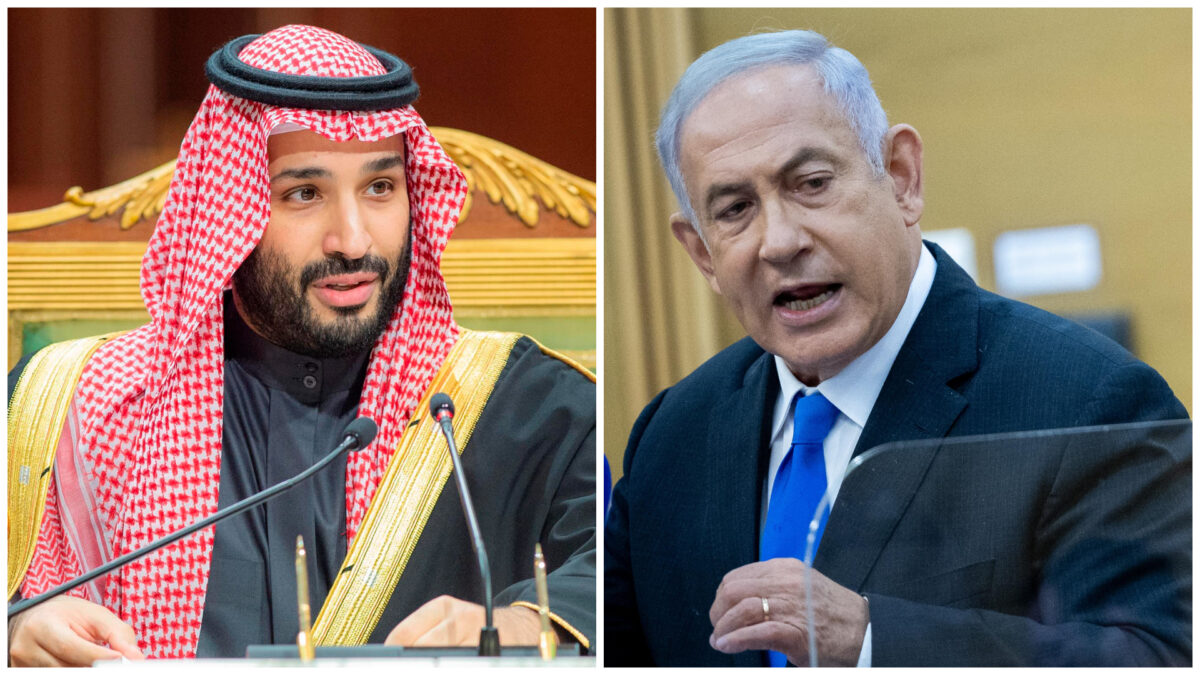The Middle East has recently witnessed a dramatic shift in the geopolitical landscape, with Israel and Saudi Arabia, two historically adversarial nations, inching towards a potential diplomatic normalisation. While still unofficial, this evolving relationship signifies a significant realignment in regional politics, driven by mutual concerns over Iran’s growing influence and the need for stability in a region often plagued by conflict.
Table of Contents
Israel and the Challenge of Palestinian Conflict
One of the significant impediments to the normalisation of relations between Israel and Saudi Arabia remains the ongoing Israeli-Palestinian conflict. The recent escalation in Gaza, marked by Israel’s counterattacks against Hamas following the October 7 assault, has further complicated these efforts. The high Palestinian casualty numbers have sparked widespread condemnation, posing a challenge to Saudi Arabia’s leadership, which must balance its diplomatic aspirations with the sentiments of its population and the broader Arab world.
Saudi Arabia Public Opinion and the Palestinian Cause
A recent poll by the Washington Institute for Near East Policy highlights a significant hurdle in the path towards normalisation: the strong support among Saudis for the Palestinian cause. With a majority expressing negative views towards Israel and sympathy for Hamas, despite its designation as a terrorist organisation by many countries, Saudi Arabia’s leadership faces a delicate balancing act. They must steer the public opinion while considering the strategic benefits of rapprochement with Israel.
Regional Dynamics and the Abraham Accords
The Abraham Accords, brokered by the United States, marked a historic milestone in Arab-Israeli relations. Nations like the UAE, Bahrain, Morocco, and Sudan established formal ties with Israel, signalling a shift in regional priorities. While Saudi Arabia has not officially joined the Accords, its behind-the-scenes interactions with Israel suggest a tacit acknowledgement of the changing regional dynamics, driven by the shared threat from Iran and the economic benefits of cooperation.
The Role of the United States
The United States continues to play a crucial role in fostering ties between Israel and Arab states. The Biden administration, like its predecessor, views the normalisation of relations between Israel and Saudi Arabia as a critical objective in stabilising the Middle East. U.S. efforts are focused on creating a conducive environment for dialogue while also urging Israel to reduce civilian casualties in its military operations in Gaza.
The Future of Israel-Saudi Relations
The path to normalised relations between Israel and Saudi Arabia is fraught with complexities. The recent escalation in Gaza, alongside Saudi public opinion and regional geopolitics, presents significant challenges. However, the mutual interests of countering Iran’s influence and pursuing economic and technological advancements strongly incentivise both nations to continue exploring diplomatic ties.
The Juggle in a Shifting Landscape
As the Middle East continues to evolve, Israel and Saudi Arabia find themselves at a crossroads. The potential for diplomatic relations offers a glimpse of a new regional order where old adversaries could become partners in pursuit of stability and prosperity. However, the road to this new era is complex, requiring careful navigation of domestic sentiments, regional conflicts, and the broader geopolitical context.
In conclusion, the future of Israel-Saudi relations will depend mainly on how both countries balance their strategic interests with the realities on the ground, particularly the Palestinian issue. It’s a careful juggle of diplomacy and pragmatism in a region where historical animosities and contemporary challenges intersect.



